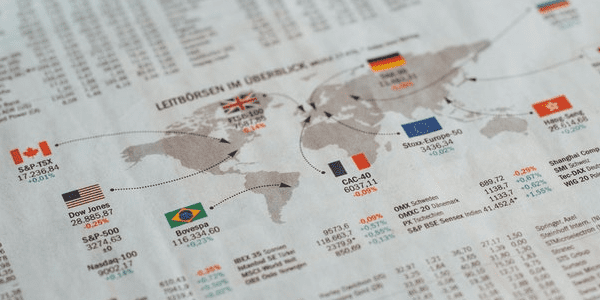As the COVID-19 pandemic impacts business operations across the globe, one area is not getting enough attention: financial data collection services. Without accurate and timely data collection from financial filings, millions of analysts and investors are unable to update their financial models and make informed investment decisions. This supply chain disruption creates a sizeable risk for our data-driven stock market.
Many of the world’s largest banking and financial services institutions (including Refinitiv, owned by Blackstone (BX) and Thomson Reuters (TRI), Morgan Stanley (MS), JP Morgan (JPM), FactSet (FDS) and Bloomberg) have business process outsourcing (BPO) operations in countries like India.
Large numbers of people in these BPO facilities gather to plow through the earnings reports of public companies and input the data into computer systems. The work they do is vital, as thousands of Wall Street professionals and millions of self-directed investors rely on this data.
With the recent COVID-19-driven lockdowns in these countries, data centers may be unable to collect incoming financial data.
The stay-at-home orders in countries like India are very serious because of the density of the populations and relatively weak health care infrastructures.
Work-from-home has serious logistical, equipment and regulatory challenges that India’s BPO industry is not yet prepared to handle. For instance, some workers have been sent home without laptops. Aside from data collection challenges, data security issues loom large in work-from-home settings – just ask Zoom (ZM).
Pressure To Work in Unsafe Conditions
Compounding the lack of preparedness, workers have expressed fear for their own safety, as illustrated in a recent Reuters article:
- "During the past week, security guards barred employees from venturing outside one of the Mphasis offices in Pune to avoid attracting the police, fearing a forced shutdown, two employees said, declining to be named as they were not authorised to speak to the media.”
- "One said a human resources executive told him not to wear a mask as it would “panic people who come to work”.
Reports of police brutality and even shutdowns of essential services leave workers unsure of whether they can even go to work, once again, raising questions about the state of data processing at these facilities.
Lockdown Comes at Critical Time
While the decision to lockdown the country is necessary to slow the spread of COVID-19, it comes at an inopportune time for financial markets. Companies with a 12/31 and 1/31 year-end date filed their annual 10-Ks in the last few weeks and fiscal 1Q20 10-Qs will be filed in large quantities in the next few weeks. Without timely access to this data, investors may be left without the information needed to make investment decisions.
Disruption in the financial data supply chain could get even bigger too, as the impacts of the COVID-19 pandemic continue to spread across the globe. Luckily for investors, there are solutions.
Research Automation: Better, Faster, Cheaper
Despite the global disruption, our Robo-Analyst technology remains unaffected by the virus. While other firms have been slow to augment human operations with technology, we are collecting data faster than ever - much faster than traditional providers even in a normal environment. Moreover, professors at Harvard Business School & MIT Sloan empirically demonstrate our data is superior as well.
Figure 1 highlights the power of the Robo-Analyst technology. During this year’s filing season, February 17 through March 31, we parsed and analyzed 2,522 10-Ks and 10-Qs, from which the Robo-Analyst collected over 254,000 data points. Our analyst team uses this data to make 40,617 forensic accounting adjustments with a dollar value of $19 trillion.
Figure 1: Filing Season 2020 – Power of the Robo-Analyst

Sources: New Constructs, LLC and company filings.
The adjustments, which HBS & MIT Sloan say are missed by investors and the overall market, are applied as follows:
- 14,422 income statement adjustments with a total value of $1.2 trillion
- 17,629 balance sheet adjustments with a total value of $8.0 trillion
- 8,566 valuation adjustments with a total value of $9.9 trillion
Looking forward to the upcoming quarterly earnings season, we expect to update our models with new quarterly information within 24 hours of the company’s filing with the SEC. Last year, we parsed and analyzed 2,369 10-Qs between April 22, 2019 and May 17, 2019.
Most investors take for granted that markets operate efficiently. A global pandemic like COVID-19 could cause less obvious supply chain disruptions that create more market uncertainty.
We stand ready to continue to support you by providing the most accurate fundamental research in the business. In uncertain times like these, such diligence is of paramount importance.
This article originally published on April 6, 2020.
Disclosure: David Trainer, Kyle Guske II, and Matt Shuler receive no compensation to write about any specific stock, sector, style, or theme.
Follow us on Twitter, Facebook, LinkedIn, and StockTwits for real-time alerts on all our research.

1 Response to "COVID-19 May Spark Dramatic Disruptions to Wall Street’s Data"
It is great to know that “Robo-Analyst technology remains unaffected by the virus.
Well done to all concerned